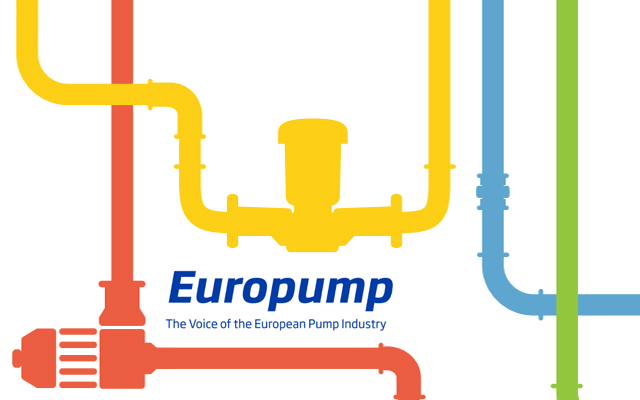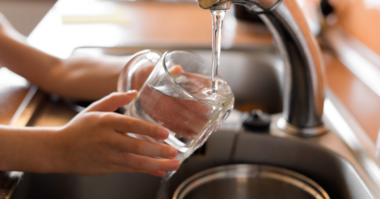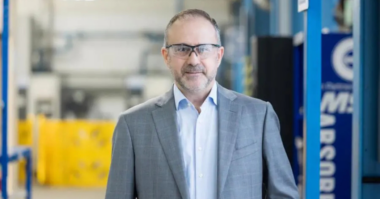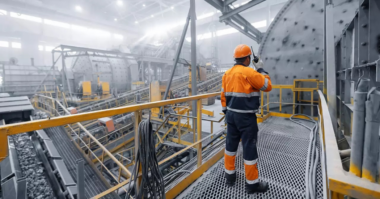Contributor: Europump
Striving to be the first carbon-neutral continent by 2050 is undoubtedly the greatest challenge and opportunity of our times. To achieve this, the European Commission has developed its Green Deal – an enormously ambitious package of measures designed to enable people and businesses to transition into a green and sustainable future. Measures accompanied with an initial roadmap of key policies range from substantially cutting emissions, to investing in cutting-edge research and innovation, to preserving Europe’s natural environment.
Supported by investments in green technologies, digitalization, sustainable solutions and new businesses, the Green Deal can be viewed as a new growth strategy for Europe. However, involvement and commitment of the public, commerce, industry and all stakeholders are fundamental to its success.
Mobilizing industry for a clean and circular economy
Achieving a climate-neutral and circular economy requires the full mobilization of industry. It takes 25 years – a generation – to transform an industrial sector and all the associated value chains. To be ready by 2050, decisions and actions need to be taken quickly, and certainly within the next five years.
In March 2020, the Commission will adopt an EU Industrial Strategy to address the twin challenge of the ‘green’ and ‘digital’ transformation. Industry must leverage the potential of digitalization, which is a key enabler for reaching the Green Deal objectives. Together with the Industrial Strategy, a new ‘Circular Economy Action Plan’ is intended to help modernize Europe’s economic outlook and draw benefit from the many opportunities presented, both domestically and globally.
A key aim of the new policy framework will be to stimulate the development of lead markets for climate-neutral and circular products. Additionally, the Circular Economy Action Plan will include a ‘sustainable products’ policy to support the circular design of all products based on common methodology and principles. It will prioritize reducing and reusing materials before recycling them. It will foster new business models and set minimum requirements to prevent environmentally harmful products from being placed on the EU market. Extended producer responsibility will also be strengthened.
This action plan will also include measures to encourage businesses to offer, and to allow consumers to choose, reusable, durable and repairable products. It will analyze the need for a ‘right to repair’ and curb the built-in obsolescence of electronic devices. Consumer policy will help to empower buyers to make informed choices and play an active role in the ecological transition. New business models based on renting and sharing goods and services will also play a role, providing they are truly sustainable and affordable.
No one could argue against these key aspirations, or indeed any of the other measures contained within the Green Deal, but the adoption of ‘common methodology’ or ‘horizontal standards’ across all product groups, could prove challenging. This will almost certainly be so for the machinery industry, which includes pumps and pumping systems, as well as fans, compressors, lathes, drills and a whole host of other tooling machines. The suggestion that industrial plant and machinery (such as those mentioned above) can be grouped together with consumer products and devices, and then be subjected to the same ‘standards’ or ‘circular design parameters’ is ludicrous. Quite simply, it will not work!
However, manufacturing industry has faced similar difficulties and challenges in relation to other European Directives, such as WEEE, Eco-Design and Drinking Water, but through dialogue and discussion, common sense has, in most cases, prevailed. So once again, industry, through its representative trade associations, must engage with the legislative authorities, present their arguments, and reach the required compromise.
Europump, which represents the European pump industry, will put itself center-stage in any such discussions, with the full support of both its Standards and Technical Commissions. In doing so, it will help to ensure that the positive and well-intentioned aspirations contained within the Green Deal’s ‘Circular Economy Action Plan’ are not improperly implemented simply because product differences have not been correctly recognized at the outset.
For further information on the work undertaken by Europump on behalf of its members and the wider pump using arena, please visit www.europump.org.




